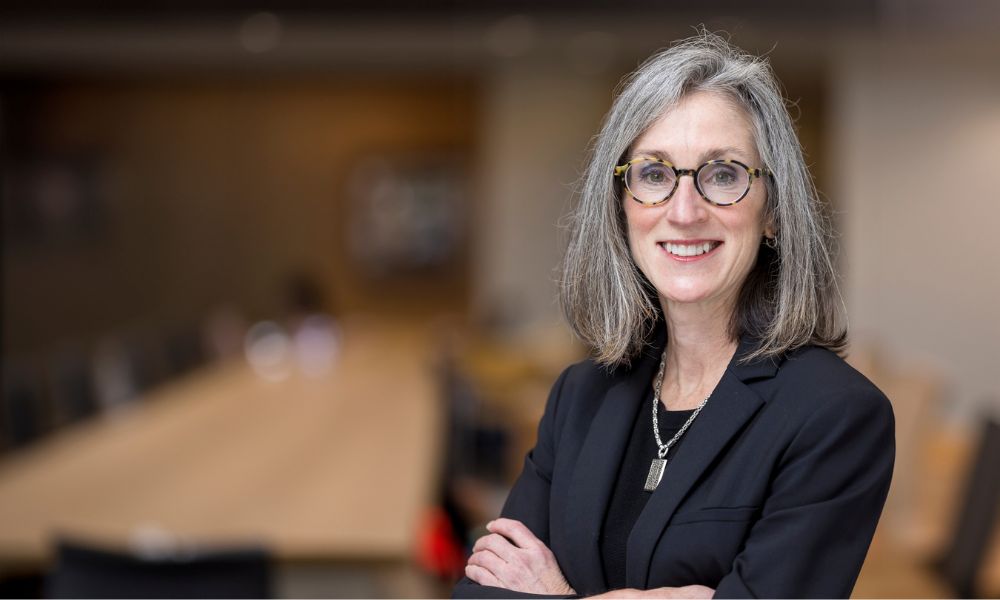91MD
Karen Brasel’s national leadership reflects her steadfast advocacy for the value of education and mentorship in the field of surgery. As vice president of the American Board of Surgery (ABS), she has spearheaded the transition to competency-based assessment in training, which promises better preparedness for the next generation of surgeons. Her research on evidence-based teaching methods, quality of life after traumatic injury, and the incorporation of palliative care has led to numerous publications and international lectures. Prior to her role with ABS, she served as assistant dean for graduate medical education, surgery program director, and vice chair of education and professional development at Oregon Health Sciences University.

Brasel’s deep connection to mentorship began with her own mentors: Peter Densen, MD; Annette Fitz, MD; and the mentor for whom she dedicated a scholarship fund at the Carver College of Medicine: Kimberly Ephgrave, MD.
She credits Ephgrave for inspiring her to pursue a career in surgery.
“She was just so very, very kind and talented,” Brasel says. “She was heavily involved in the American College of Surgeons and the Association of Women Surgeons; both of those organizations ended up being important to me, and I was involved in both because of her."
Serving in professional organizations and as a physician advocate became a driving force in Brasel’s career.
“In all of these spaces, I felt that we might need to have a new or different perspective, often because there hadn’t been many women in those spaces” she says. “Once I started, I just kept going.”
Brasel's foremost achievement and ongoing body of work as vice president of the American Board of Surgery is the national implementation of competency-based assessment for surgical trainees.
“There was no robotics when I trained. There was no hepatitis C,” she says. “Now, the amount of medical knowledge doubles approximately every 70 days. And yet, surgical training is still essentially the same as it has been for 100 years.”
The new assessment aims to provide more rigorous assessment to facilitate trainees' mastery of key concepts and give educational administrators reliable guideposts by which their growth can be measured. In the coming years, Brasel hopes to refine the assessment and implement it across more surgical subspecialties.
“We’re now asking, ‘Can the trainees do this thing?’ And we’re asking it frequently and giving feedback, so residents have an idea of what they need to do to move to the next step,” Brasel says.
Brasel’s academic contributions have focused on traumatic injury from a number of angles. She laid the groundwork in her master’s thesis for a measurement tool for patients’ quality of life after trauma, forming a scale that is still in use today. She has also studied the intersection of surgical and palliative care.
As an educator, she is driven by a mission to advance medicine by advancing the individual performance and confidence of each individual learner.
“Your legacy is the people you teach,” Brasel says. “When a student comes who can only make an incision, and then you see them at the end of training, and they can do the entire case, take care of the patient, and talk to the family—and you are a part of what made that happen—there isn't anything that's more vital than that.”
In all her roles, she strives to be a “servant leader.”
“It means doing things for the good of other people, not for the accolades,” Brasel says. “To be a servant leader is to use your knowledge, your influence, and your skills to make your corner of the world better.”